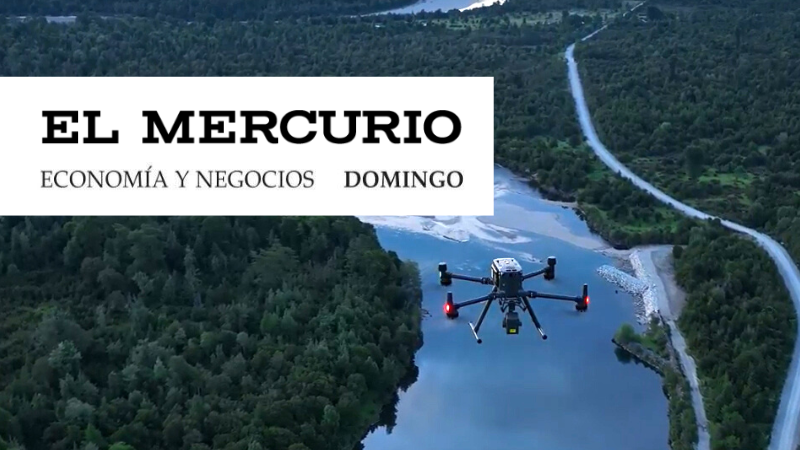
The Real Eco State allies with NASA’s project which aims at bringing Patagonia’s carbon sequestration contribution
Marketing land for conservation in Patagonia has led the company The Real Eco State to ally with NASA to measure the amount of carbon sequestration of Chilean forests through satellites; this data may become tradable assets in the market.
Felipe Escalona, the company’s founder, declares that more than 6.000 hectares have been sold “as private conservation parks” in Aysén so far, and there is still an extension equivalent to four times this area to be marketed.
When marketing these plots of land, The Real Eco State applies the permanent Conservation Easement; a legal tool whose purpose is to protect different natural features, defining permitted and restricted use of land; for instance, the ones for industrial purposes, felling of trees, fencing, the entrance of domestic animals and or the modification of water courses, among others.
To guarantee the compliance of DRC and the conservation of the areas sold, The Real Eco State works with the foundation WeConserv, which takes care of and monitors the land.
More than 20% of the sales in 2021 came from North American and European citizens; taking this trend into account, The Real Eco State decided to open a new branch in New York in 2022.
The company’s internationalization resolved the Chilean legal requirements to buy and register lands for foreign investors. To make this possible, The Real Eco State works with the law firm Baker &McKenzie, which legally endorses the acquisition of a property in Patagonia without holding a Chilean RUT.
Investing in conservation is more than mere philanthropy; the investors may obtain 20% of profitability on average yearly due to the land acquisition. The company sold US 25 million between 2017 and 2022, and it aims at the new ecological market.
The alliance with NASA
The Global Ecosystem Dynamics Investigation GEDI is a NASA’s project to measure how deforestation has contributed to the atmospheric concentrations of C02. This structure mapping of the global ecosystem through satellites is used to calculate the aerial biomass. Although this permits measuring the amount of carbon stored by vegetation, it has an error margin.
At this point, The Real Eco State began to collaborate with NASA by complementing NASA’s data with its one collected through drones that fly over Aysen’s parks to decrease the error margin of the satellites. This procedure allows a precise definition of the levels of C02 retention.
In Escalona's words, the data provided by Chile permit measuring both precise amounts of C02, which sequester carbon from Chilean Patagonia, and the impact they have on mitigating climate change effects. In other words, this data permits us to evaluate the consequences of conservation and the contribution of tree-covered zones to the carbon sequestration from the environment, which has turned out to be higher than Amazonia’s.
These data are valuable not only at an ecological level but also at a commercial one. It is expected that the land owner may have a double benefit from it; On one hand, the increase in the property price, and on the other hand, the contribution of forests to fight global warming.
The current sales model of carbon credits is based on the measurement of carbon sequestration that a forest has, inasmuch as it grows after deforestation. Escalona explains that this model supposes the destruction of nature in the first place; in his opinion, it makes the difference with private conservation parks.
A carbon credit is equivalent to a ton of sequestered carbon. The results demonstrate that one hectare of Aysen’s Patagonian forest sequesters roughly 120 tons of carbon. In other words, if an owner could obtain the certified emission reductions, this person may receive better compensation when trading these assets.
Escalona adds that creating a new market where it is possible to sell tradable ecological assets in a protected area is being worked on currently. “The conservation assets may generate credits as ecological assets.".
Source: El Mercurio

